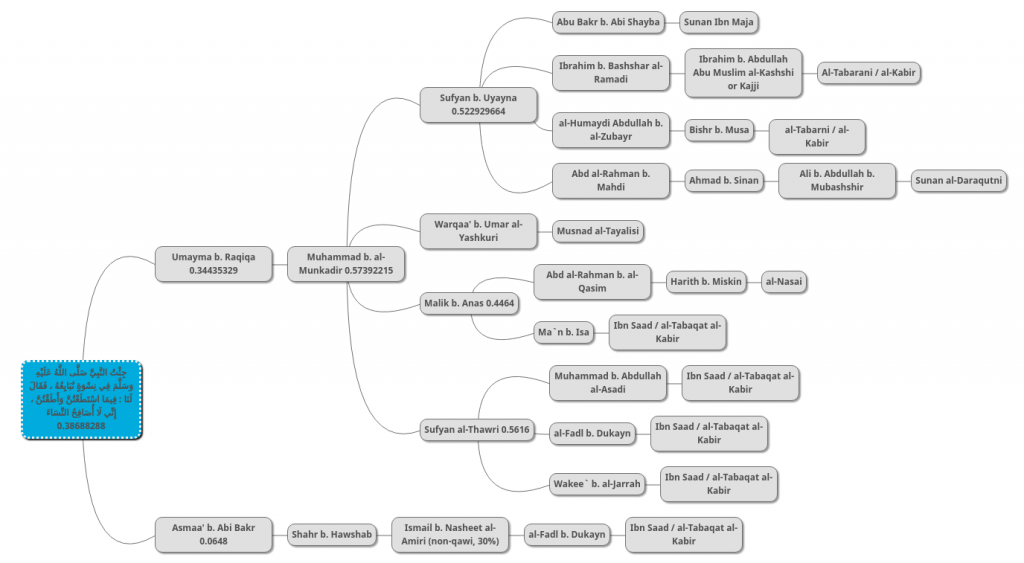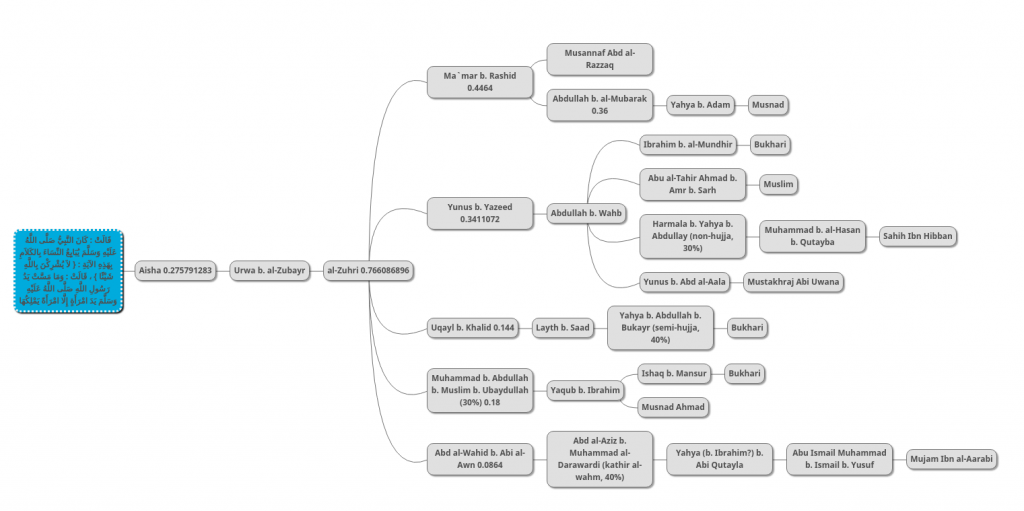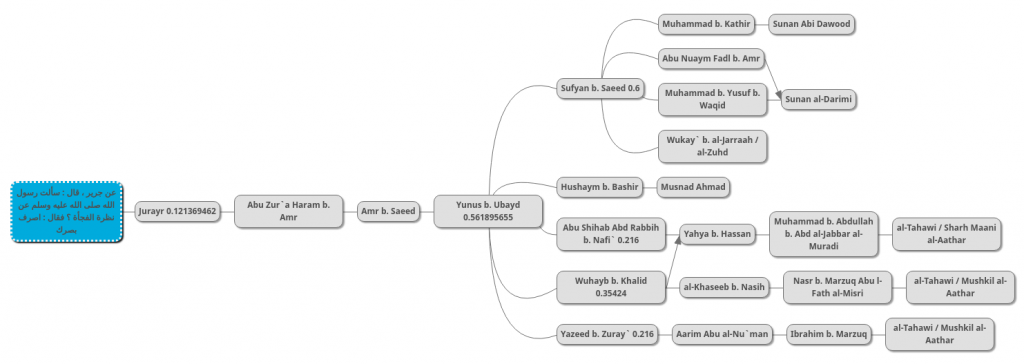Assalamualaikum I came across a hadith on Facebook which says that touching any non- mahram woman is harām. I wanted to ask if that Hadith is authentic, and if it is so, then to what extent does this rule apply in our life. I mean I have female relatives who are quite elder to me( 9 years and more) . Is it allowed to shake hands with them or hug them if in my heart I consider them to be like my mothers and sisters?
Alaikumassalam wa rahmatullah,
Touching people of the opposite sex whom you can potentially marry (i.e. non-mahrams) is not permitted in Islam unless there is a good reason, as in a doctor touching a person of the opposite sex during a procedure. There is also an exception for shaking hands with a person of the opposite sex in order not to humiliate them by refusing the handshake. When it comes to shaking the hands of the relatives you mentioned or hugging them, it is best to avoid it, but it is not a great issue if you accept these gestures in order to avoid upsetting them, until you find an opportunity to tell them that you wish to avoid these things in the future for religious reasons. As for elders who are at an age where they would no longer consider marriage (perhaps 60 or more), then these rules can be relaxed. But if they are 30 or 40 years old, then the rules would continue to apply even if you are much younger than them.
The most explicit hadith we have on the issue of touching the opposite sex is the following:
لأن يطعن في رأس أحدكم بمخيط من حديد خير له من أن يمس امرأة لا تحل له
It is better for one of you to pierce his head with an iron needle than to touch a woman for whom she is not halal.
Al-Tabarani
This hadith comes to us through Shaddad b. Saeed who is considered trustworthy but unreliable by many scholars, therefore this hadith is not guaranteed to be authentic and is therefore not relevant to this discussion.
The next hadith is one where the Prophet  explicitly states that he does not shake women’s hands:
explicitly states that he does not shake women’s hands:
Muhammad bin Munkadir said that he heard Umaimah bint Ruqaiqah say:
Sunan Ibn Majah Vol. 4, Book 24, Hadith 2874 and others.
“I came to the Prophet (ﷺ) with some other women, to offer our pledge to him. He said to us: ‘(I accept your pledge) with regard to what you are able to do. But I do not shake hands with women.’”
Below is the chain diagram for this hadith:

This hadith receives an authenticity score of 38.69% according to our probabilistic hadith verification method. This score is rather high, since sahih hadiths start at 30%, meaning that this hadith is very high-quality.
The next hadith on touching non-mahrams is the following:
Aisha the wife of the Prophet, said, "Allah's Messenger (ﷺ) used to examine the believing women who migrated to him in accordance with this Verse: 'O Prophet! When believing women come to you to take the oath of allegiance to you… Verily! Allah is Oft-Forgiving Most Merciful.' (60.12) `Aisha said, "And if any of the believing women accepted the condition (assigned in the above-mentioned Verse), Allah's Messenger (ﷺ) would say to her. "I have accepted your pledge of allegiance." "He would only say that, for, by Allah, his hand never touched, any lady during that pledge of allegiance. He did not receive their pledge except by saying, "I have accepted your pledge of allegiance for that."
Sahih al-Bukhari Book 65, Hadith 4891; Sahih Muslim 1866 a; other collections
Below is a chain diagram of the hadith:

This hadith receives an authenticity score of 27.57%, making it close to the authentic mark of 30%.
The above appears to be all of the explicit evidence we have on the touching of non-mahrams.
Evidence from lowering the gaze
The Quran commands us to “lower our gaze”. The context of the two verses that command this make it clear that it refers to gazing at the opposite sex idly and/or lustfully.
Tell the believing men to restrain their looks, and to guard their privates. That is purer for them. God is cognizant of what they do.
And tell the believing women to restrain their looks, and to guard their privates, and not display their beauty except what is apparent thereof, and to draw their coverings over their breasts, and not expose their beauty except to their husbands, their fathers, their husbands' fathers, their sons, their husbands' sons, their brothers, their brothers' sons, their sisters' sons, their women, what their right hands possess, their male attendants who have no sexual desires, or children who are not yet aware of the nakedness of women. And they should not strike their feet to draw attention to their hidden beauty. And repent to God, all of you believers, so that you may succeed. (The Quran, verses 24:30-31)
There are also hadiths that mention the same concept, as in the following:
Jarir said I asked the Apostle of Allaah(ﷺ) about an accidental glance (at a woman). He (ﷺ) said “Turn your gaze away.”
Sunan Abi Dawud 2148
Below is the chain diagram for this hadith:

This hadith receives an authenticity score of 12.14%, which is not very high. But it is easier to accept such hadiths as authentic due to their uncontroversial contents.
Naturally, if we are commanded to avoid gazing at the opposite sex idly or lustfully, then the same would apply to touching.
Evidence from the hijab
Another highly relevant area of evidence is that which applies to the rules on parts of the body that have to be covered. Naturally, if we are forbidden from looking at a certain part of a person’s body, we would also be forbidden from touching it. For the evidence on the rulings on which parts of the body should be covered see:
- The purpose of hijab in Islam
- Why the hijab is still obligatory (and why it is not only a vestige of 7th century Arabia)
Conclusion
From the evidence presented above, it is clear that touching the opposite sex idly or lustfully is not permitted in Islam. The Prophet  avoided shaking women’s hands despite this being a harmless form of greeting, which shows us that the highest Islamic ideal is to always work to minimize contact with the opposite sex. However, the evidence does not prohibit necessary touching, as in a doctor touching a person of the opposite sex during a medical procedure.
avoided shaking women’s hands despite this being a harmless form of greeting, which shows us that the highest Islamic ideal is to always work to minimize contact with the opposite sex. However, the evidence does not prohibit necessary touching, as in a doctor touching a person of the opposite sex during a medical procedure.
The exception on shaking hands
Scholars such as Yusuf al-Qaradawi permit shaking the hands of the opposite sex when meeting non-Muslims in order to prevent humiliating them by refusing the handshake, since in such cases avoiding humiliating the person takes priority over the no-touching rule. Shaykh Yusuf al-Qaradawi mentions that while the Prophet  never shook the hands of women, Umar
never shook the hands of women, Umar  did that, and Abu Bakr
did that, and Abu Bakr  shook an old woman’s hands.
shook an old woman’s hands.
References:
Very nice work here mashaAllah!
Greetings.
I had a small doubt regarding a hadith relating to Quranic verse 4:95 which said that another verse was revealed which substituted the older verse(which didn’t accommodate disabled persons(a blind man in this case) who couldn’t participate in jihad). My question was why did the verse contain the exception in the first place itself, rather than having been revealed twice. Allah is all knowing, so allah would have known that the blind man would ask that question. Can you clear me this issue?
Hadith in question.
Narrated Al-Bara: There was revealed: ‘Not equal are those believers who sit (at home) and those who strive and fight in the Cause of Allah.’ (4.95) The Prophet (ﷺ) said, “Call Zaid for me and let him bring the board, the inkpot and the scapula bone (or the scapula bone and the ink pot).”‘ Then he said, “Write: ‘Not equal are those Believers who sit …”, and at that time ‘Amr bin Um Maktum, the blind man was sitting behind the Prophet (ﷺ). He said, “O Allah’s Apostle! What is your order for me (as regards the above Verse) as I am a blind man?” So, instead of the above Verse, the following Verse was revealed: ‘Not equal are those believers who sit (at home) except those who are disabled and those who strive and fight in the cause of Allah.’
Al-Bukhari, al-Sahih, Translated by Muhsin Khan (Riyadh: Darussalam Publishers, 2007) Hadith 4990// Vol.6, Book 61, Number 512
My friend forgive me for telling this to you .
The Hadith narated by Bukhari is not true if we will consider the different ways the Hadith been narrated
1 from Bukahri prophet order somebody to call zaid bn thabit write the verse while the ummu makhtum is there.
2. And the second narration from Bukhari again 4594 prophet order somebody no body knows the person
3. From Bukhari 4592 ummu makhtum was not there while revealing the verse he came during the dectating
4 . Bukahri 2832 ummu makhtum came while dectating
5. Nasai 3100 zaid was not called his thigh is against prophet he even sence the heavy of his thigh
6.Turmidhi 3033
If you examine the narrations we can’t differentiate which one is true which one is fail.
I consider the Hadith as fabricate showing evidence that after the verse reveal prophet alter thing you know way of putting doubt in the mind of Muslims.
Salam, I notice that you haven’t posted on this website in a very long time. Your website and essays are incredibly helpful. Are you still using this website?
Yusuf Qardawi is a refuted scholar,so knowledge should NOT be taken from him.
He’s nit a scholar firstly.
Second,even if he was ,scholars make mistakes,and one should not follow such a person who justifies suicide bombings and other stuff.
He’s deviant,not a salaf.
Nice